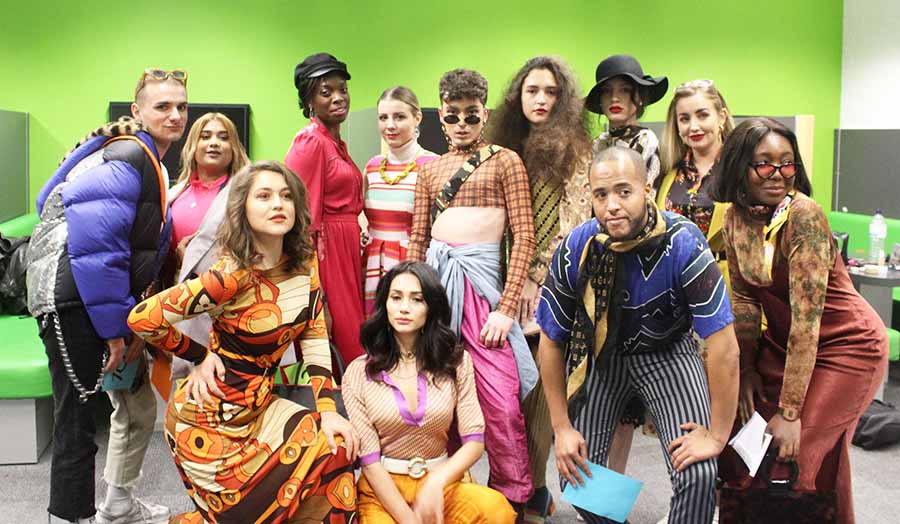Nikos Papanikolaou, a second-year Journalism BA student, reports on an event which delved into fashion being environmentally sustainable.
Date: 16 January 2020
Should fashion go vegan? That was the question that a panel of sustainable fashion experts tried to answer in front of a full hall of Journalism BA students and guests on 14 January at London Metropolitan University.
Bel Jacobs, former fashion editor of Metro who now freelances on ethical fashion and animal rights; Marta Canga, vegan fashion influencer; Sascha Camilli, founder and editor of Vilda Luxe Vegan Living; Omar Mansoor, London-based fashion designer and Vanita Badlani Bagri, founder of cruelty-free LaBante London discussed a myriad of student questions.
The event was part of the journalism course’s Newsweek, where students spend three days producing magazines, online blogs, and television and radio programmes. They not only reported on the debate and conducted interviews but also worked across social media, conducted live filming and wrote up live blogs.
Climate change is not an urban legend as some may believe. It is a reality that everyone has to face, as it is already affecting our lives and our ecosystem globally, and overconsumption is not making things better.
But what can we do?
“It’s not only about vegan fashion but it’s more about a general culture change that needs to be done,” said Bel Jacobs. Fashion is a significant part of our culture, and fashion labels should become more conscious of the way their clothing lines are being produced.
Even more importantly, we should be mindful of the way we behave as consumers. “The most important thing is to have an effect on the masses,” said Omar Mansoor. “It’s all about supply and demand at the end of the day. If the masses go vegan, industries will follow.”
Many, however, point out that leather products are more sustainable than vegan ones – they last longer, for example. Bel Jacobs said that vegan fashion promoters and producers should do more in terms of using less toxic products.
But how many of us ever questioned leather as a material? How many animals are slaughtered every year for the fashion industry’s needs?
Marta Canga thinks it depends on where we draw the line concerning which animals we think it’s okay to kill, and which animals we keep as pets. Sascha Camilli urged people to acknowledge that animals are sentient beings - it is our fundamental duty to care for them, said Bel.
But is vegan fashion a business opportunity or is it something genuine? The panel agreed that the outcome of this trend should be the thing that matters most. It’s not about our fashion style, it’s about changing our lifestyles and making them more sustainable. As Omar Mansoor said: “who cares if it’s just a business opportunity as long as more vegan products are out there.”
Millennials are the ones who will change things. Because now it’s not just a lifestyle issue; it’s a matter of life and death. From the wildfires in Australia to the ice sheet melting in Greenland, we need to start thinking about our future.
“Being sustainable is the new normal,” Sascha said. And indeed it is the new normal if not a necessity. Or more than that, a way of survival.
The event concluded with a fashion catwalk featuring student models. The theme was Superclash 2020: Free your fashion, inspired by the superclash movement from the 1970s which saw fashion houses prodcing ranges with mesmeric and floral prints with saturated colour palettes. Clothes could only be second-hand to inspire sustainable looks.

To see more articles about the event, please see our student website: https://
Find out more about Sustainability at London Met.
